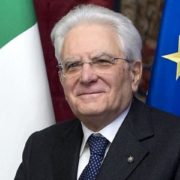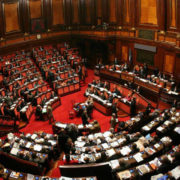America is the elephant in the room of the improving relations between the Holy See and China.
Yes, history is at work with the normalization of ties between the Holy See and China. The 2,000-year-old Catholic Church is the largest unitary religion in the world, with influence over 1.3 billion of souls, inspiring some 700 million variously denominated Christians and respected by over one billion Muslims.
The church is now reaching out to a 3,000-year-old empire, directly commanding 1.4 billion citizens. Almost all the world is here, directly or indirectly.
These numbers then are bound to make the Vatican-China connection a priority for the resilient incumbent superpower, America. It is something that goes deep into its own identity and role in the world.
Moreover, unlike with any other Pope and differently from other times in American history, US public opinion has been enthralled by Pope Francis, first with love, then perhaps with puzzlement, and a little umbrage, as if he had at least partly betrayed their trust and affection. Some Americans are put off by the Pope liberal attitude towards old family values, in his Amoris Letitia, and apparently much more people are shocked that the Vatican is talking to China, just when China is becoming “enemy n.1”, the “grand trampler” of human rights in the public media.
These reactions prove that America takes the Pope very seriously, per se, even without China.
It is important that the Pope is controversial; it is proof he is doing his job right and that people take him for what he is, somebody challenging our lives and thoughts.
He is not, and can’t be, part of a party, to be taken under the wing of conservatives, as some Republicans tried to do with Pope Ratzinger, who was almost pulled into the ranks of those rooting for a clash against Islam; or of liberals, as some Democrats might have wished to do with Pope Bergoglio, with his message against rampant capitalism and in favor of immigration.
Maybe the issue is simple. The Holy See is talking to China as all other governments and institutions of the world do. Having an embassy and talking to Chinese officials doesn’t mean endorsing any or all of its actions, it means trying to solve problems through dialogue rather than a fistfight.
This is true, but it is also important to understand why the church is willing to establish ties now that tensions are rapidly rising in the region around China for all kinds of motivations.
Actually one reason is certainly that efforts for peace in Asia to prevent an escalation to war are now more necessary than ever, and the church responds to this call. The case of the North Korean crisis, with a Chinese angle and closely followed in Rome, is an example.
In a nutshell the ultimate cause of the growing chafing around China is about Beijing’s difficult integration in a world dominated by western values. Here the Church might help with this integration.
The church is meant to help the needy: the people who are at war or about to go to war. It doesn’t need to side with those who are rich and live in comfort.
Can the church contribute to peace, if only by its presence? Perhaps only a miracle will improve the situation around China, according to some. Then, yes, the church ought to be there because it is in the business of miracles.
As Pope Francis said, the church must be building bridges to avoid a clash and try to find a way forward.
Yet it is not all about religious idealism. There is also a realpolitik tilt for the US in all of this. Over the past 16 years, with failures in the wars in Iraq and Afghanistan, and with the Jasmine revolutions in the Middle East, the United States is realizing it is no longer the total power it felt it was at the end of the Cold War.
In the early 1990s, the US thought history had ended and the world was flattened by American rule. Now America feels wronged, it feels that it is no longer “number one,” and therefore it must be first again, as President Trump somehow put it.
But the reality is that despite its failures, America is still the world superpower, yet perhaps it can’t face these challenges in the world alone, with its old mindset. Can the church be of help, and will the US be willing to be inspired by the Pope?
That is not to say that the US has to follow the Pope or that the Pope has to become a political leader. Quite the contrary, perhaps the Pope can help America to find anew the religious spirit that inspired its foundation, its revolution, and its history.
American revolution, unlike the French one, was not anti-religious. Religion is a deep part of the American identity, and the Pope, perhaps the most prominent religious leader in the world today, could help the US regain its unity, away from the temptations of extreme partisanship in politics.
Moreover, in China it is not a fight with or against other Christians or religions for the market of souls. Some commentators point out that numbers of Protestants are growing much faster than Catholics. From this, they see a weakness of the Catholic Church in China.
Protestants are growing fast, but they have no structure, and their pastors are sometimes without proper religious studies. Therefore, they could easily be turned into a cult, as happened in the 19th century with the Taiping Rebellion.
The structure of the church provides a strong skeleton of resilience against different pushes and pulls. This has been true for all the Church history. This gives the church a unique role and reach in its approach to China, which goes beyond what any state can offer. In this delicate historical moment it could then be helpful to China and to the US.





